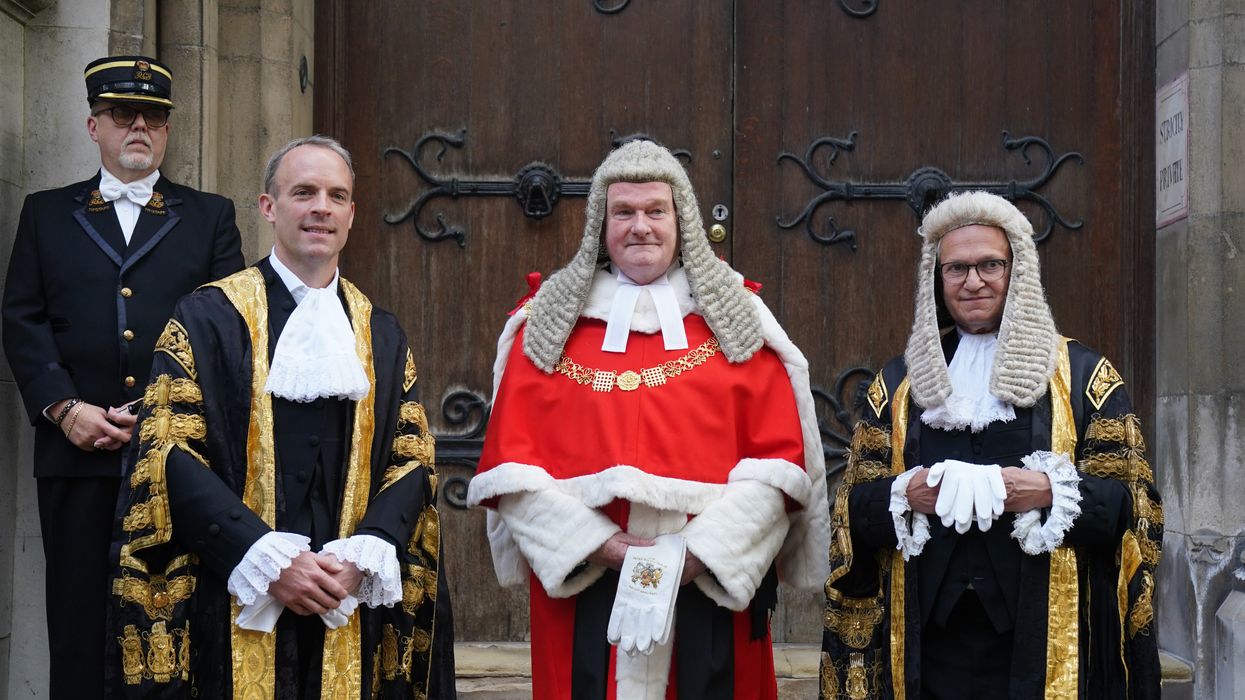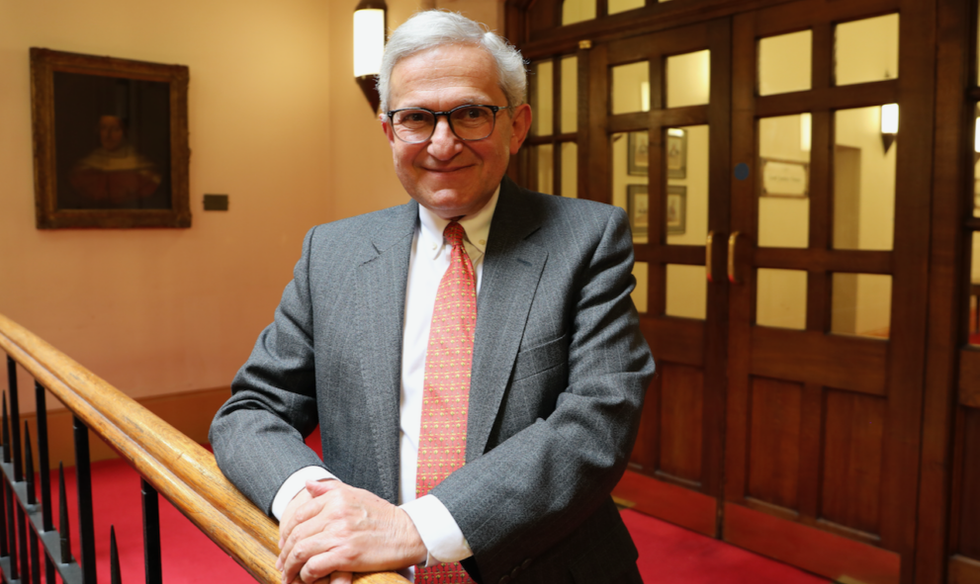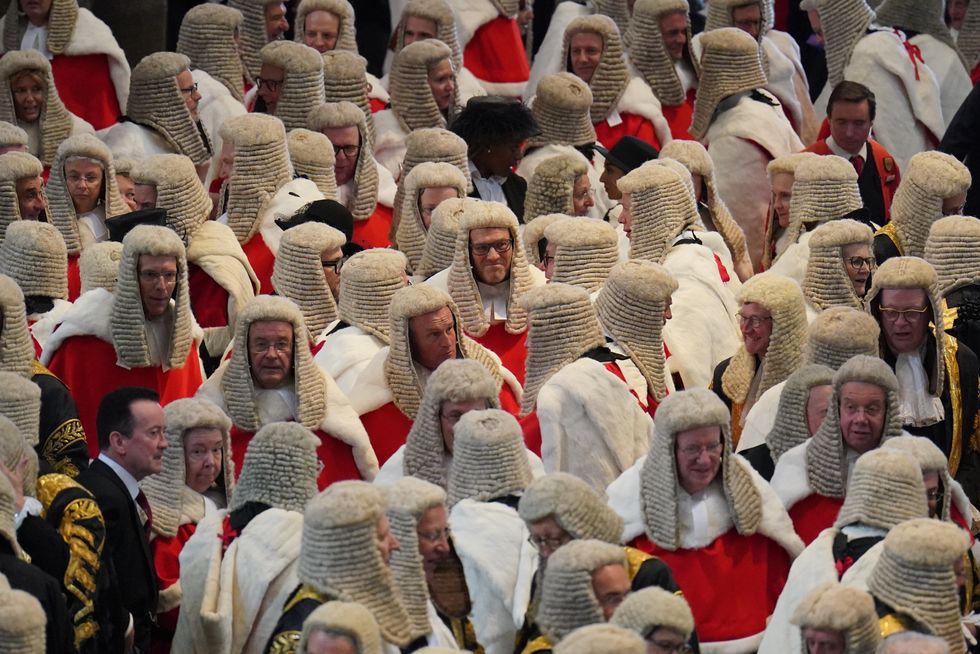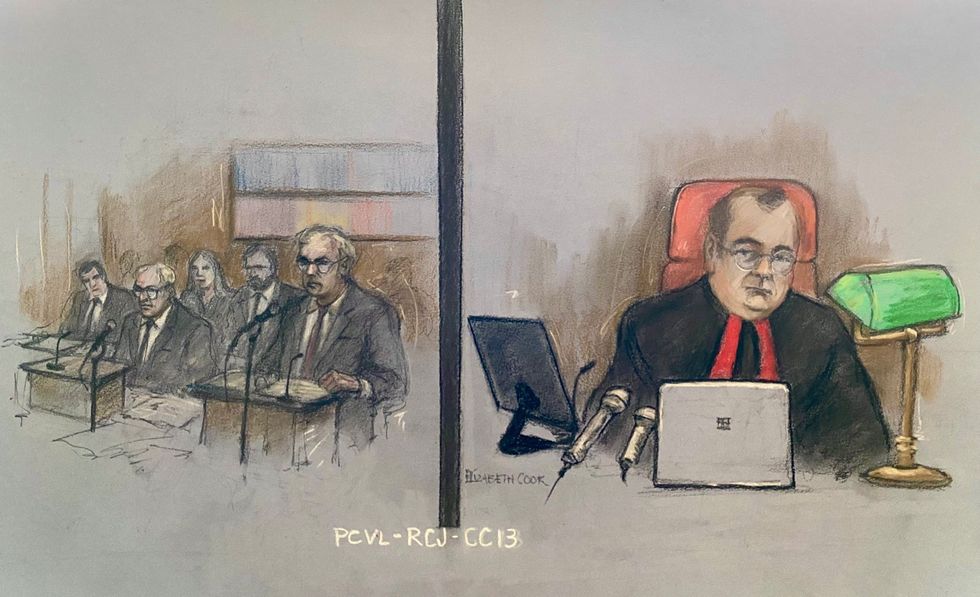
AI-powered machines might soon be the fairest, most efficient and cost effective means of enforcing the rule of law, according to a senior judge.
The Master of the Rolls, Sir Georffrey Vos, 67, believes that AI could “at some stage, be used to take some (at first, very minor) decisions.”
This would be conditional to all parties involved knowing “what decisions are taken by judges and what by machines,” and Sir Geoffrey believes that there must “always be the option for an appeal to a human judge.”
However, in theory, the Master of the Rolls believes it is “imperative to embrace digital innovation and AI” in the litigation and arbitration arenas.

Outlining his perspective in a speech at the Law and Technology Conference last week, the Master of the Rolls acknowledged that the public must develop confidence in AI before robot judges would be accepted.
Conceding that AI is a little way off taking full control, Sir Geoffrey said: “There are some decisions — like for example intensely personal decisions relating to the welfare of children — that humans are unlikely ever to accept being decided by machines.”
And yet, Sir Geofrrey added: “In other kinds of less intensely personal disputes, such as commercial and compensation disputes, parties may come to have confidence in machine-made decisions more quickly than many might expect.”
From an initial point of rejection, the use of AI could slowly chip away at public fears until it becomes an accepted norm such as the harnessing of video assistant referees in sport or health tech in hospitals.

In this way, Sir Geoffrey points towards cancer diagnosis: “The machine has seen many more skin cancers than any doctor and its advice is already, I believe, a valuable adjunct to the tools available to medical professionals.”
The Master makes clear that the ball is already rolling, for a “digital justice system” is set to be introduced in England and Wales that will signpost citizens to the desired pro-action portal or dispute resolution forum.
Sir Geoffrey said: “That digital justice system will ultimately culminate at the end of what I regard as a “funnel” in the online court process that is already being developed for pretty well all civil, family and tribunal disputes.”
Speaking at Lincoln’s Inn earlier in the year, Sir Geoffrey implored listeners to “get with the programme” arguing that “if London is to retain its place as a litigation and arbitration destination of choice, it will be imperative to embrace digital innovation and AI.”

The robo judge comments come following the case of a New York lawyer who apologised recently after allegedly using ChatGPT to undertake research that led to several fake cases being submitted to the court.
The lawyer, Steven A Schwartz, said that although ChatGPT concedes that it can “produce inaccurate information”, he was “unaware that its content could be false”.
from GB News https://ift.tt/4r5t2ET

AI-powered machines might soon be the fairest, most efficient and cost effective means of enforcing the rule of law, according to a senior judge.
The Master of the Rolls, Sir Georffrey Vos, 67, believes that AI could “at some stage, be used to take some (at first, very minor) decisions.”
This would be conditional to all parties involved knowing “what decisions are taken by judges and what by machines,” and Sir Geoffrey believes that there must “always be the option for an appeal to a human judge.”
However, in theory, the Master of the Rolls believes it is “imperative to embrace digital innovation and AI” in the litigation and arbitration arenas.

Outlining his perspective in a speech at the Law and Technology Conference last week, the Master of the Rolls acknowledged that the public must develop confidence in AI before robot judges would be accepted.
Conceding that AI is a little way off taking full control, Sir Geoffrey said: “There are some decisions — like for example intensely personal decisions relating to the welfare of children — that humans are unlikely ever to accept being decided by machines.”
And yet, Sir Geofrrey added: “In other kinds of less intensely personal disputes, such as commercial and compensation disputes, parties may come to have confidence in machine-made decisions more quickly than many might expect.”
From an initial point of rejection, the use of AI could slowly chip away at public fears until it becomes an accepted norm such as the harnessing of video assistant referees in sport or health tech in hospitals.

In this way, Sir Geoffrey points towards cancer diagnosis: “The machine has seen many more skin cancers than any doctor and its advice is already, I believe, a valuable adjunct to the tools available to medical professionals.”
The Master makes clear that the ball is already rolling, for a “digital justice system” is set to be introduced in England and Wales that will signpost citizens to the desired pro-action portal or dispute resolution forum.
Sir Geoffrey said: “That digital justice system will ultimately culminate at the end of what I regard as a “funnel” in the online court process that is already being developed for pretty well all civil, family and tribunal disputes.”
Speaking at Lincoln’s Inn earlier in the year, Sir Geoffrey implored listeners to “get with the programme” arguing that “if London is to retain its place as a litigation and arbitration destination of choice, it will be imperative to embrace digital innovation and AI.”

The robo judge comments come following the case of a New York lawyer who apologised recently after allegedly using ChatGPT to undertake research that led to several fake cases being submitted to the court.
The lawyer, Steven A Schwartz, said that although ChatGPT concedes that it can “produce inaccurate information”, he was “unaware that its content could be false”.



0 Comments
Don't share any link